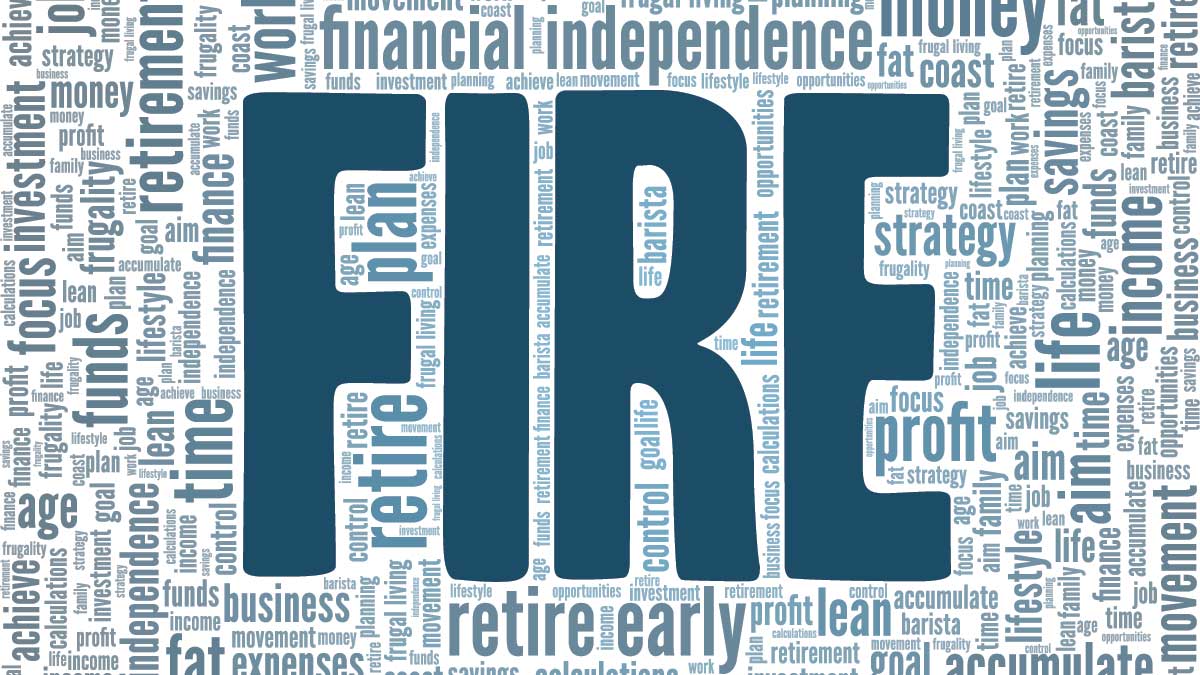Many people dream of an early retirement – a life free from employment obligations and work pressures. A lifestyle that allows more time to travel, visit grandchildren, socialise and pursue personal projects.
Ah, the dream of early retirement …
A popular way to get you on the road to early retirement is the Financial Independence, Retire Early (F.I.R.E.) strategy. The movement typically targets younger generations, but can you use the F.I.R.E. strategy to help you retire earlier?
How does F.I.R.E. work?
In a nutshell, the F.I.R.E. strategy is about making significant savings and investments while living frugally to retire earlier. Some F.I.R.E. adherents live on half their income in order to gain independence from employment at a younger age, typically by their mid-40s.
But what if you are near or over 55 and still want to ‘play with F.I.R.E.’? Is it too late to start?
F.I.R.E. away: The questions you need to ask or answer
Stay honest with your financial situation. Retirement planning is serious business and manipulating your actual financial figures will not benefit you in the long-term. Accept your current situation and make decisions based on your precise financial standing.
How much are you earning and spending annually? What savings do you have? What about investments? Having solid answers to these questions will help develop a clear picture of where you stand and how far you have to go. Remember, it is always better to overestimate the cost of retirement to ensure an ample safety net.
Begin by calculating your annual costs. Cut back on unnecessary expenses and reinvest the extra funds. Use low-cost index funds, Exchange Traded Funds (ETFs), or Real Estate Investment Trusts (REITs). Investment choices ultimately hinge on personal preference and a clear understanding of the financial market.
Set a retirement age goal. Remember that playing with F.I.R.E. does not necessarily mean early retirement. The strategy is about achieving financial independence and perhaps opting once again for employment – but on your own terms.
How far should you go to cut back?
F.I.R.E. does mention frugality, but should not be confused with poverty. Being frugal means choosing financially responsible behaviours such as driving a used car instead of buying a new model (or using public transport), cooking meals as opposed to dining out, and eliminating non-essential spending habits. Living simply gives you a better chance at success with a F.I.R.E. strategy regardless of age.
Once your basic financial needs are met, funnelling most of your income towards investments will help you increase your savings faster. Aim for a savings rate that is much higher than what typical financial advisors would recommend, which is often as high as 50-70 per cent of your income. A lofty goal, yes, but how badly do you wish to retire earlier?
Can F.I.R.E. work for everyone?
Critics argue that the F.I.R.E. movement is not viable for all, as not everyone has high income, substantial savings, or low costs to allow massive savings or support the strategy.
But F.I.R.E. is not necessarily about extreme frugality, or about a set retirement age, but about gaining financial freedom to lead a life in which employment is an option not a necessity.
The F.I.R.E. strategy can benefit Australians planning a retirement journey late in their career. It’s never too late to start your F.I.R.E. journey, but it’s essential to plan well. The key is to start now, save as much as you can, cut unnecessary costs, invest wisely and practise patience.
It is feasible to start your retirement journey in your 50s or 60s, so start making timely investments and focus on increasing income sources and reigning in outgoings. Baby steps taken today can lead you towards financial stability later (or much sooner) in life.
While it may seem an aggressive strategy to some, you should remember that the primary aim of the F.I.R.E. strategy is to bring you financial freedom and independence – something most of us want no matter our age.
What tips would you offer members who’d like to retire earlier? Would you adopt some of these techniques to bolster your existing nest egg? Does this seem like ‘new’ advice, or is it a strategy you’ve followed all along?
Also read: Early retirement checklist

